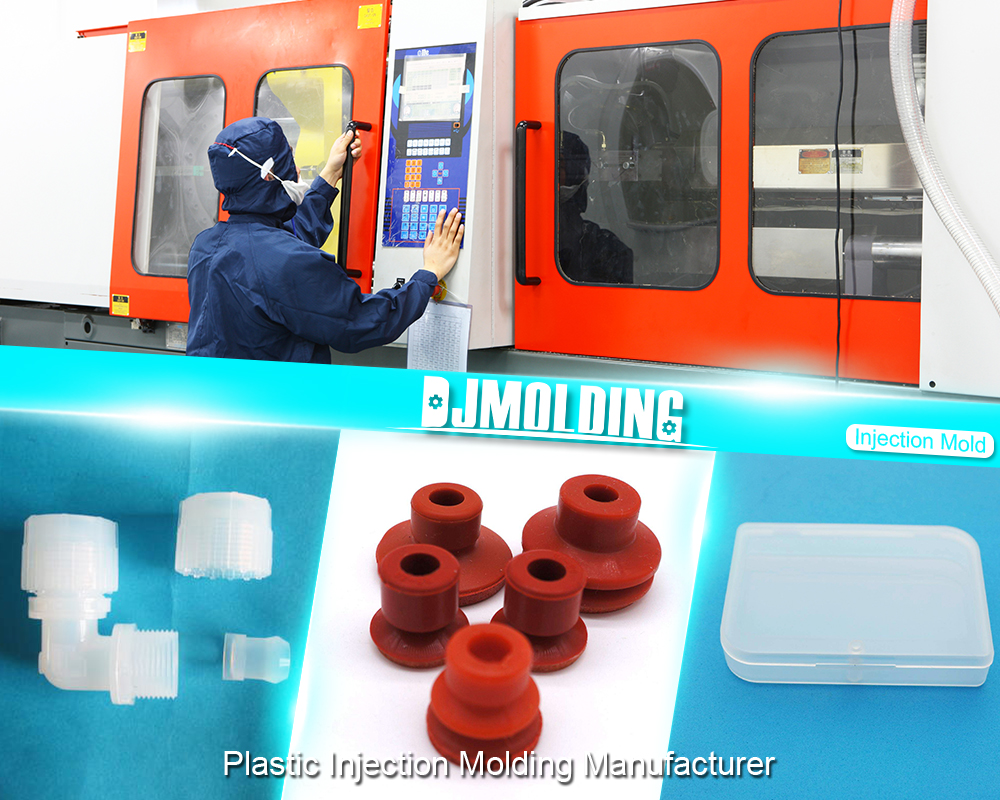Innovative Applications of Polymer Injection Molding Molding Across Fields
Plastic injection molding has become a foundation of contemporary manufacturing, redefining how industries create and fabricate products. This process allows for the efficient production of sophisticated parts with detail and reliability, making it a preferred choice across various sectors such as vehicle, healthcare, consumer goods, and electronic devices. As companies strive for advancement and optimization, the versatility of plastic injection molding continues to unlock new doors for innovative applications.
In the last decade, advancements in technology and materials have further augmented the capabilities of plastic injection molding technology. This has led to the creation of light components, intricate designs, and green solutions that not only meet the needs of today's consumers but also fit with environmental goals. As industries evolve, the role of plastic injection molding becomes even more vital, driving the future of manufacturing in thrilling and surprising ways.
Advantages of Plastic Injection Forming

Plastic injection provides several key benefits that make it a preferred manufacturing method in multiple industries. One of the main benefits is its ability to produce intricate forms with high accuracy. This process allows for detailed designs and complex features to be incorporated into the final product, which is important for modern applications spanning vehicle components to electronic housings. By utilizing molds that are expertly crafted, manufacturers can achieve consistent and reproducible results that meet strict quality standards.
Another significant benefit is the efficiency of the plastic injection service. The ability to quickly create large quantities of components from the same mold lowers production durations and costs substantially. Once a mold is produced, multiple items can be manufactured within a matter of seconds, which leads to lower workforce and material costs per unit. This efficiency is especially important in high-demand markets where businesses need to expand production quickly without compromising on quality.
Moreover, plastic injection is highly adaptable and can handle a wide range of substances, including various plastics and thermosetting. This versatility allows manufacturers to choose materials that most fit the specific needs of their items, whether they need bendability, strength, or heat tolerance. In furthermore, the ability to combine various materials into the same part opens up new opportunities for creativity and performance, enhancing the overall value of the products produced through this innovative method.
Key Industries Utilizing Injection Molding
A key vehicle sector represents one of the prominent fields which widely use polymeric injection-molding techniques. This manufacturing technique allows for the effective production of numerous components, such as dashboards, front ends, and cabin fixtures. Because of the ongoing demand for lighter substances to improve efficiency in fuel consumption and reduce emissions, injection molding is increasingly a critical method for creating complex shapes as well as structures comply with stringent regulatory and performance criteria.
In the context of the consumer electronics sector, polymeric injection molding is essential in producing casings, controls, along with other intricate components for devices such as mobile phones along with laptops. The capability to manufacture precise robust components quickly helps manufacturers meet growing need for innovative technology and also keeping cost efficiency. Furthermore, improvements in materials as well as design techniques improve the performance as well as aesthetic appeal of electronic products, offering manufacturers a competitive edge.
Another significant medical device industry also greatly benefits from polymeric injection-molding techniques. Healthcare equipment frequently needs components with complex designs alongside sterile production requirements, which this method can efficiently provide. Including plastic injection molding service and housings for diagnostic equipment, this method ensures top-notch and consistent production that adheres to rigorous regulatory requirements. As, the use of plastic injection molding will probably expand, enabling the development of innovative, life-saving devices.
Future Developments in Injection Molding of Plastics
As sectors keep to progress, the future of injection molding in plastics is set to embrace advanced tech and eco-friendliness. One notable trend is the integration of Industry 4.0 concepts, which include the use of IoT (Internet of Things) devices to track and enhance production processes in real-time. This connectivity allows for enhanced efficiency and the capability to predict maintenance requirements before issues arise, considerably reducing downtime and operational costs. Automated processes and robots will also play a crucial part, making the process quicker and more precise while minimizing human error.
Sustainability is emerging as a critical consideration for producers, and the injection molding of plastics industry is no different. The drive for green methods is leading to increased use of recycled materials and compostable plastics. Innovations in materials technology will allow for the creation of new types of plastics that are both sustainable and suitable for high-performance applications. Businesses that prioritize eco-friendly solutions will not only comply with laws but also attract environmentally conscious consumers.
Finally, customization and fast prototyping are becoming key priorities for the future of plastic injection molding. As customer demands change towards personalized products, producers are putting resources into solutions that enable the rapid adaptation of molds and patterns. This shift allows for more concise production runs and quicker response durations to industry trends, providing businesses a competitive edge. With improvements in 3D printing and CAD modeling, the obstacles to creating tailored designs are diminishing, thus broadening the uses of plastic injection molding across multiple industries.